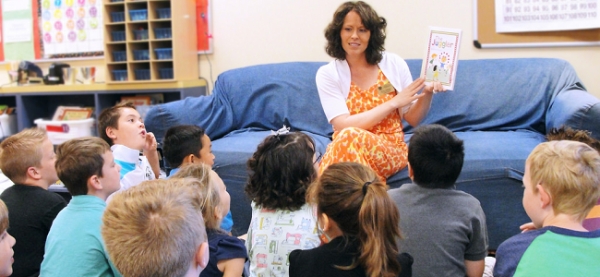Once the dust settles my values don’t go away, and I’m sure that yours don’t either. Regardless of which party wins we still have those and this makes me reflect on what we value in education.
Is it to prepare them for the world of work?
We hear a lot about preparing our students for jobs that don’t even exist yet; some people are even preparing them for jobs that do exist. There’s no doubt that we need make sure we develop students skills and attitudes so that they have the best chance at success in the world. The more cynical may argue about the routine of bells and schedules preparing them for factory life, but in our post-industrial economy not as many of those exist. I can say that the educators I know are preparing students for their life after school; developing their talents, building their confidence, honing their analytical skills and providing them with opportunities to explore their interests.
Is education a tool for social mobility?
The right opportunities and experiences allow young people to realise more in them than they thought possible. Regardless of their social or economic origins, the right education allows our students to become literate, numerate, cultured and capable. Capable of choosing a career that fits their passions, or making enough money to support their family or making a difference to others in the world. Education doesn’t guarantee every child will reach their dreams, but it does give them a chance. In many ways this is preparing them for the world of work too; but with an idealistic undertone.
To develop their understanding of the world?
The value of knowledge and understanding for the sake of it. I don’t see anything wrong with wishing students to leave school with a good understanding of the world around them and their place in it. The idea of well-rounded and thoughtful members of society with an appreciation of culture and science is an almost utopian dream. If we look at what our students have compared to previous generations, we’re getting closer to that ideal and with the access to information, art, literature and music provided by new technologies the opportunities for each generation are increasing. We’re fortunate to be the ones to guide them through these interesting times.
Is it just about making them think?
Some argue that thinking has intrinsic value; in its purest form, true beauty. Whether developing the capacity to reason and construct their own arguments or unravelling the deeper meaning of our existence, thinking underpins all of academia. So much is said about the importance of common sense or initiative; surely we must teach them how to think for themselves. Teaching students to think doesn’t come as some great opportunity cost; they can still learn knowledge and context, relevance and meaning. Thinking is part of the learning process, not some sinister separation which steals away their knowledge. Students should be able to learn to use their knowledge and think to some purpose.
Is it about league tables and school statistics?
Actually you can argue it is. I once heard an impassioned speech by a senior leader who explained why the data and league tables really mattered to him. He wanted the students from his school to go for jobs in the local area with employers knowing the calibre of the school and the young people within it. No-one wants their child to go to a failing school and as part of the rich picture schools do need to look at the checks and measures in place to make sure what they deliver is of the highest possible standard. I’d never argue that these are the only things that matter, but they do have a relevance and importance to us as educators. I’m also certain that if we’re doing everything else right that getting the data and league tables right should be the easy part.
What are you doing about it?
There’s a lot of things we need to do at work; our list of official duties are quite clear between the teachers standards and our personal contracts. So where do our values fit in? It could be seen as difficult to squeeze an ideological campaign between planning, teaching, marking and drinking cups of coffee. Actually it’s not, as long as we’re providing a high quality education that’s appropriate for the students we teach. Whatever we value in education we should be aware of it; it keeps us sharp, focused on the value of what we do to change the lives of the young people in front of us. If we’re passionate about what we do and turn that passion into action we’re taking small steps to make the world a better place. I think that may be even more powerful than having a vote.
How do you promote such values in your school? Let us know in the comments.

















